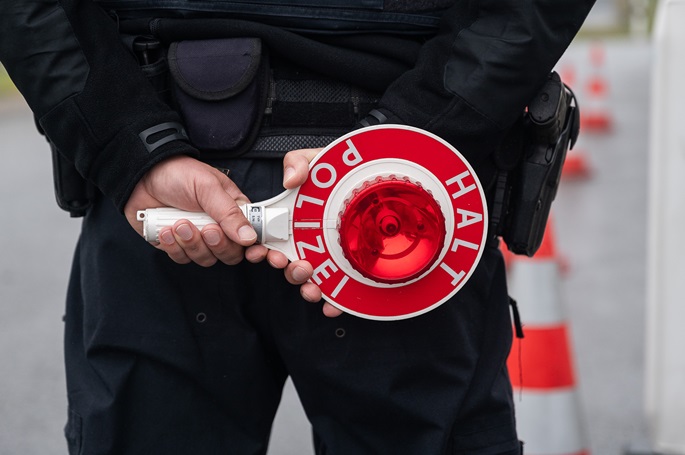Germany begins new checks on all borders to limit migration
Published : 16 Sep 2024, 22:10
Germany on Monday extended border controls to all of its frontiers in an effort to limit illegal migration, in a move critics argue threatens Schengen area rules on freedom of movement, reported dpa.
German police were to launch checks on crossings with Luxembourg, Belgium, the Netherlands and Denmark, expanding previous controls on crossings to Poland, the Czech Republic, Austria, Switzerland and France.
Interior Minister Nancy Faeser, who ordered the checks, has promised that cross-border commuters should not expect major disruption to traffic.
Faeser formally registered the new controls with the European Commission a week ago, arguing they are necessary due to high numbers of migrants reaching Germany.
They are initially due to last six months, but could be extended. Checks on the border to Austria have been ongoing since 2015.
First controls on Dutch, Danish borders
As German police began conducting checks on the Dutch border, three drug smugglers were detained early on Monday.
The three men fled a checkpoint on the A30 motorway near the town of Bad Bentheim and were eventually caught with hashish in the boot of their car 30 kilometres away.
Controls also began on the border to Denmark, where authorities in the northern German state of Schleswig-Holstein were yet to report any incidents.
The move attracted criticism from Germany's small Danish minority in the state.
Thousands of cross-border workers now face being checked twice a day, as Denmark has had controls on its border for years.
German police warn of 'major challenge'
Also on Monday, an official from the German Police Union (GdP) warned that border checks were a "major challenge" for the country's police forces and could not be comprehensive.
"We have 1,400 kilometres on the western border alone - in addition to the 2,400 kilometres that we already cover on the eastern and southern borders," said Andreas Rosskopf.
He added: "It is almost impossible to do this without any gaps."
"Given the length of the border, permanent and intensive checks are not possible," said the union representative.
It therefore remains to be seen how successful the new checks will be in "curbing migration and smuggling offences."
Rosskopf said the new checks would require cooperation between the country's various police forces.
"This will be more than a major challenge for the federal police, both in terms of personnel and equipment. We can only do this with the addition of strong forces from our riot police."
Controls would also continue at German railway stations and airports, Rosskopf said. "The balancing act will be huge," he added.
Checks begin despite Schengen area rules
While the 29 signatories to the Schengen Agreement, which include most members of the European Union as well as Norway, Switzerland, Iceland and Liechtenstein, generally allow free movement across their internal borders, controls have returned on some crossings due to the migrant situation and the threat of Islamic terrorism.
Border controls allow authorities to turn back migrants, a far easier procedure than deporting them after entry.
Since October 2023, Germany has turned back some 30,000 migrants without the legal right to enter the country.
The issue of migration returned to the top of the political agenda when a Syrian man last month allegedly killed three people in a mass stabbing in the western city of Solingen.


